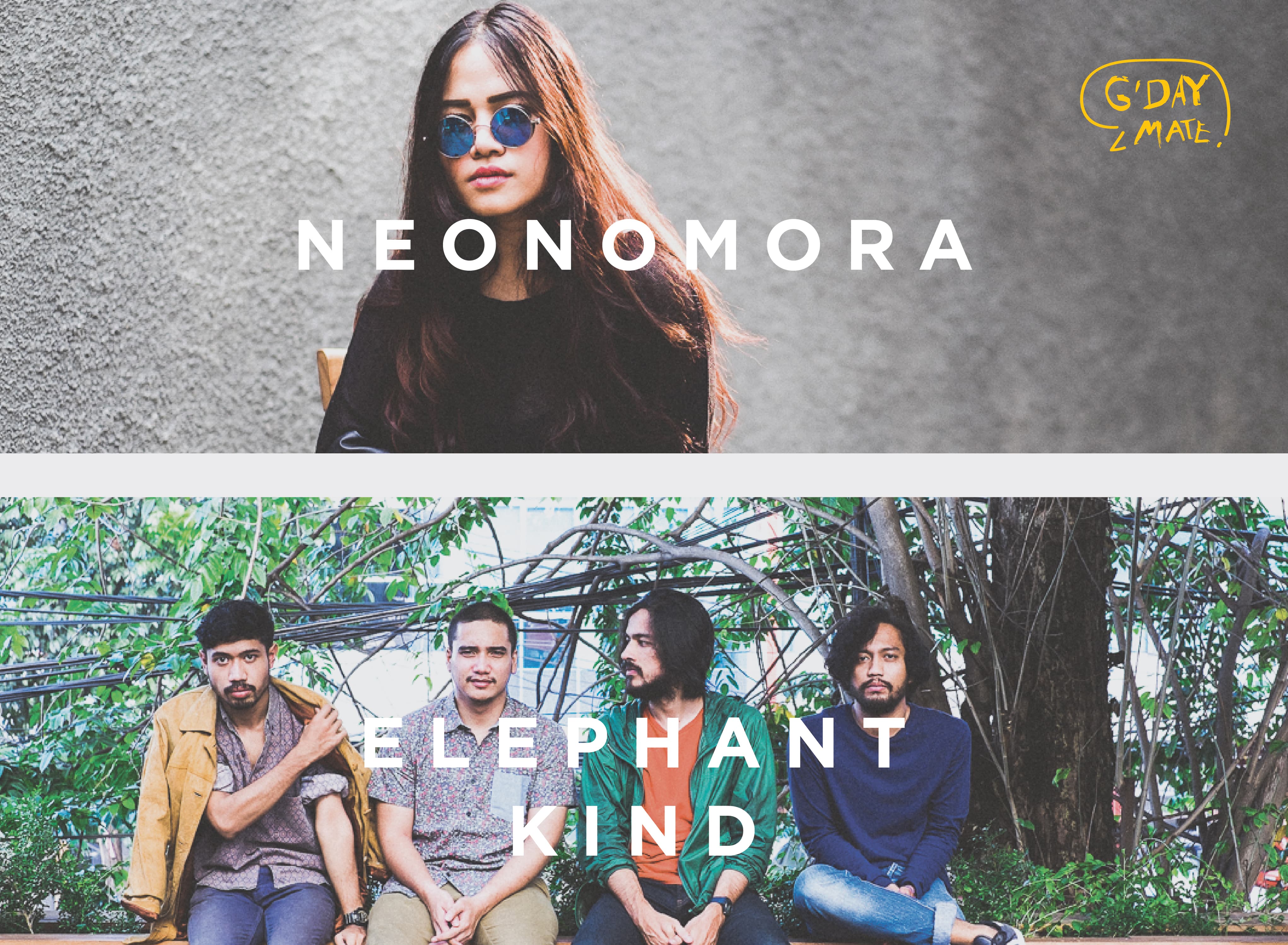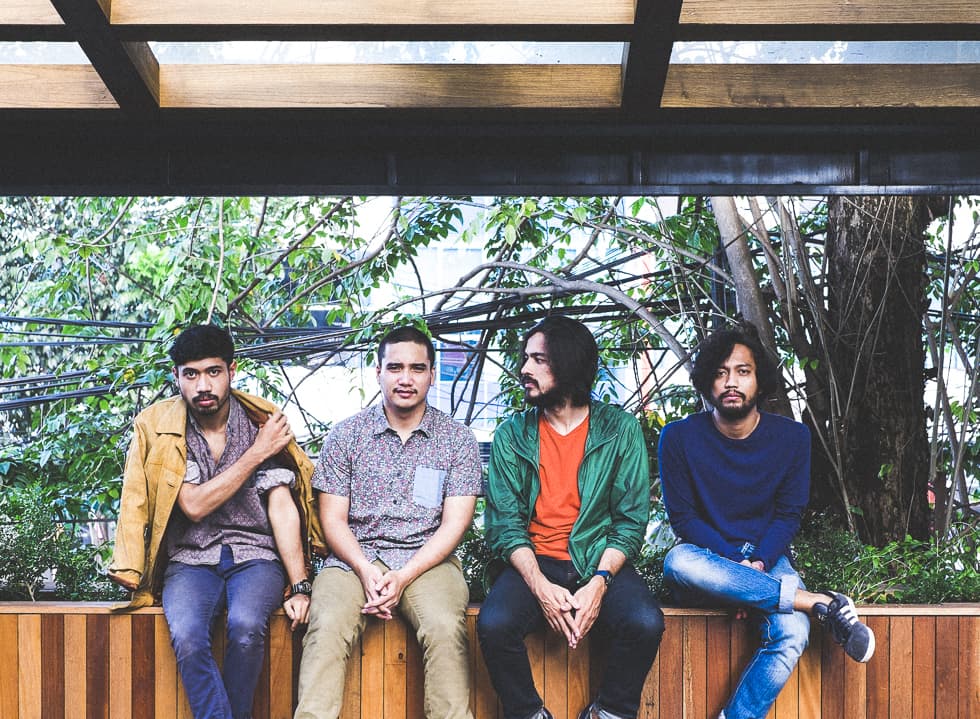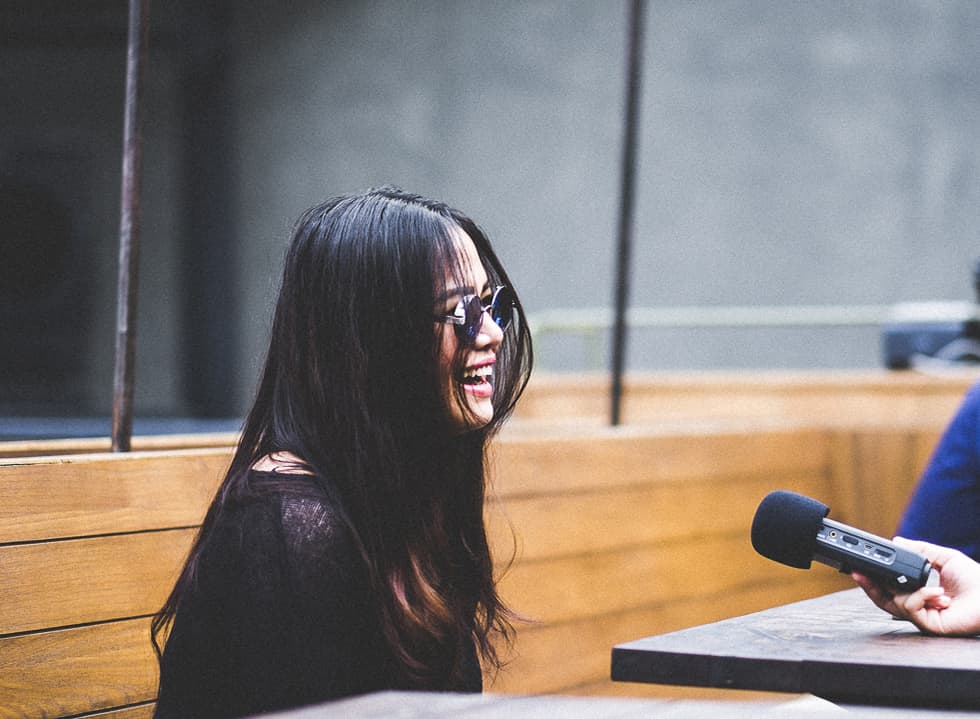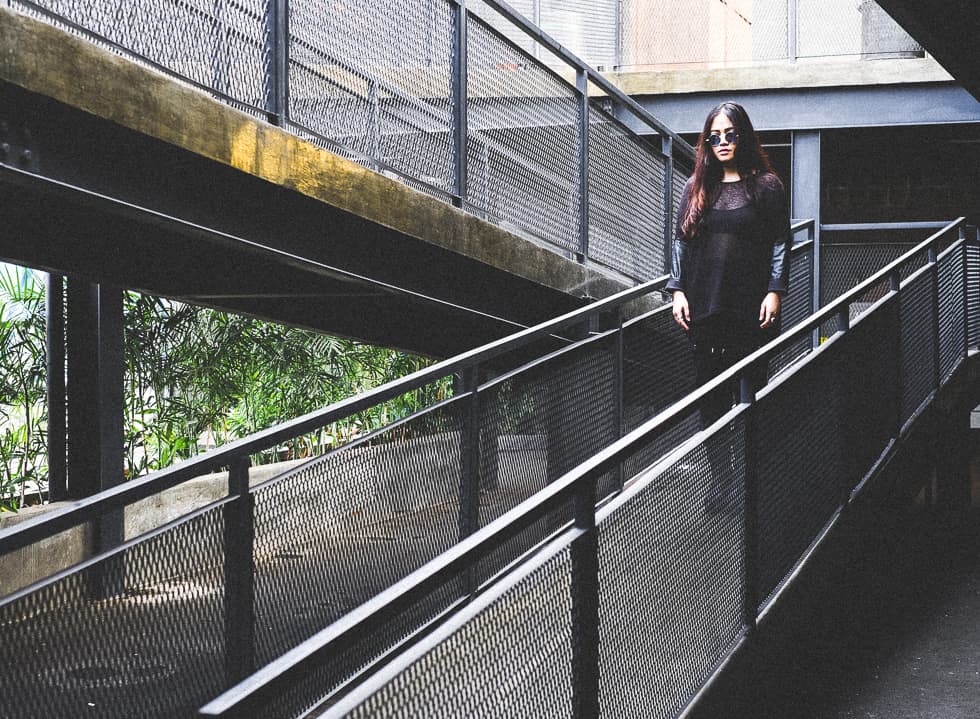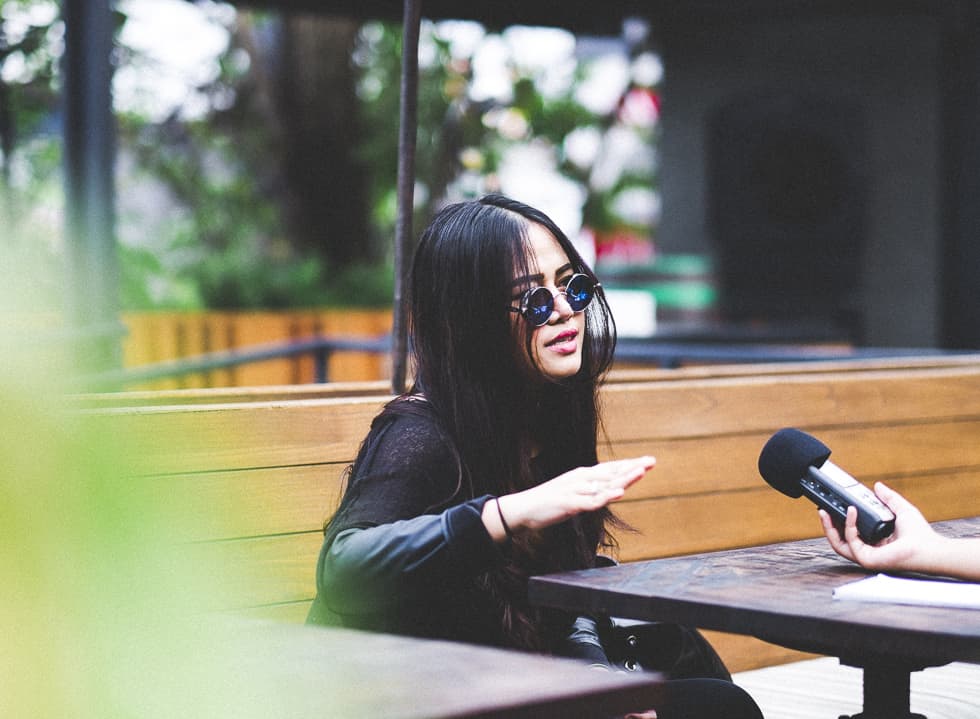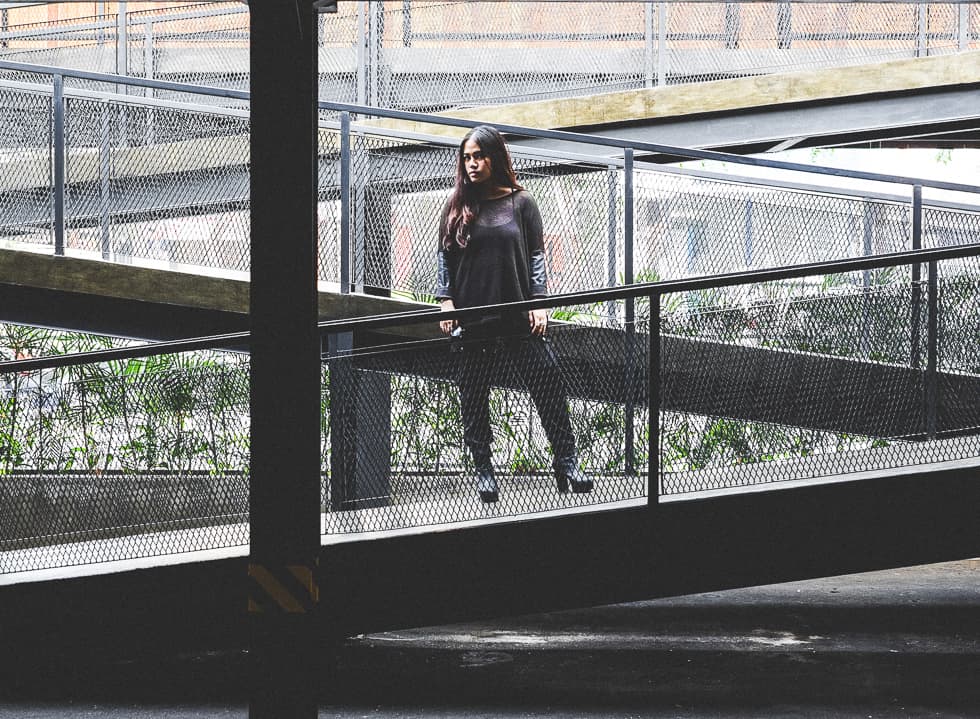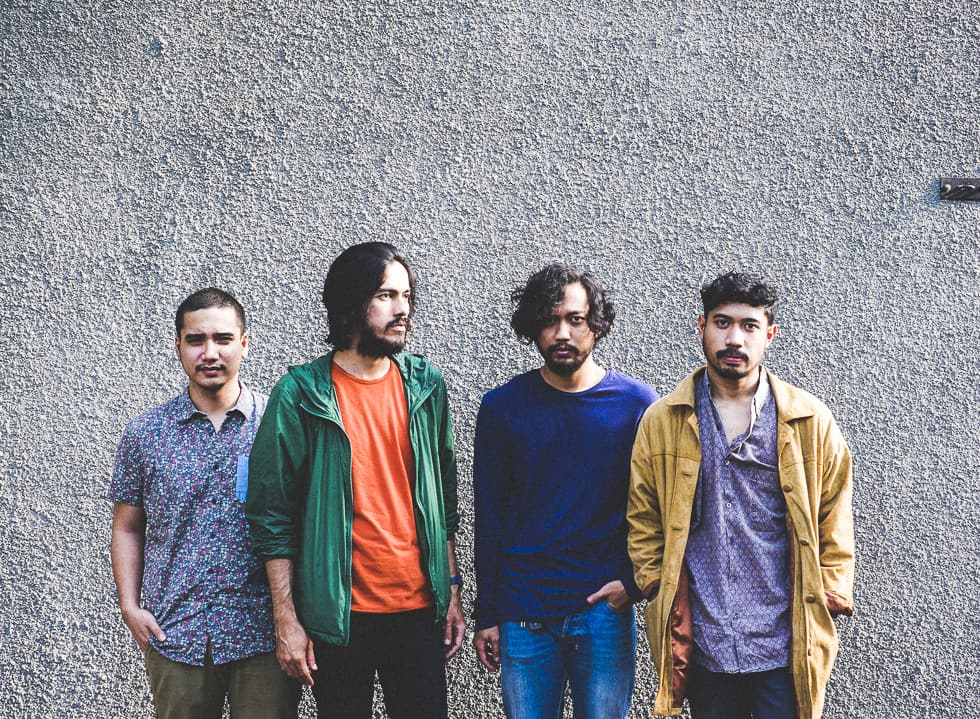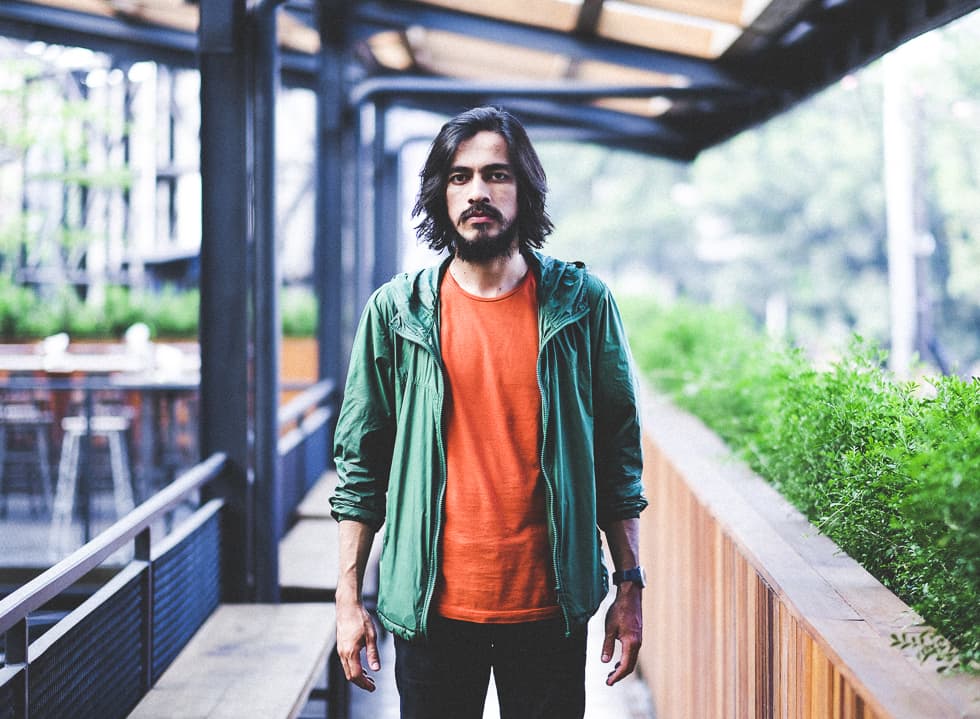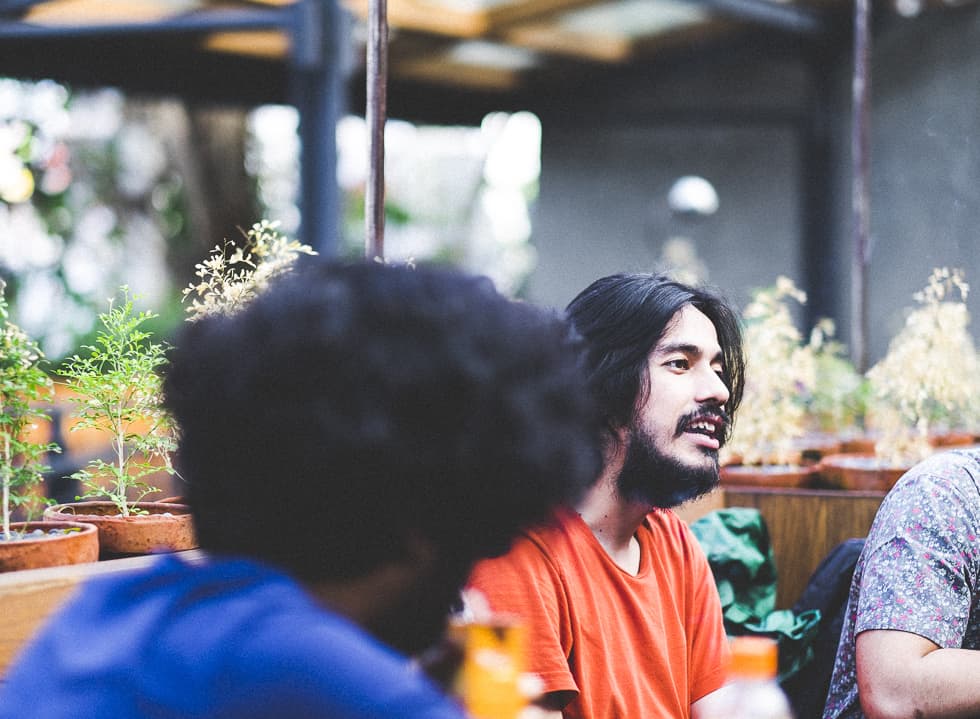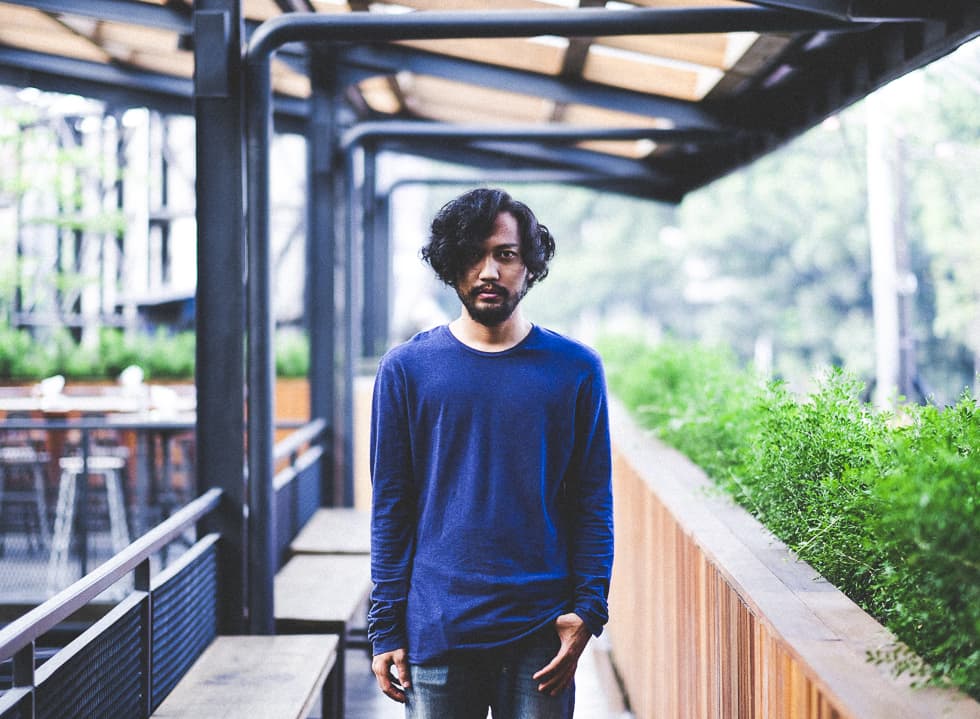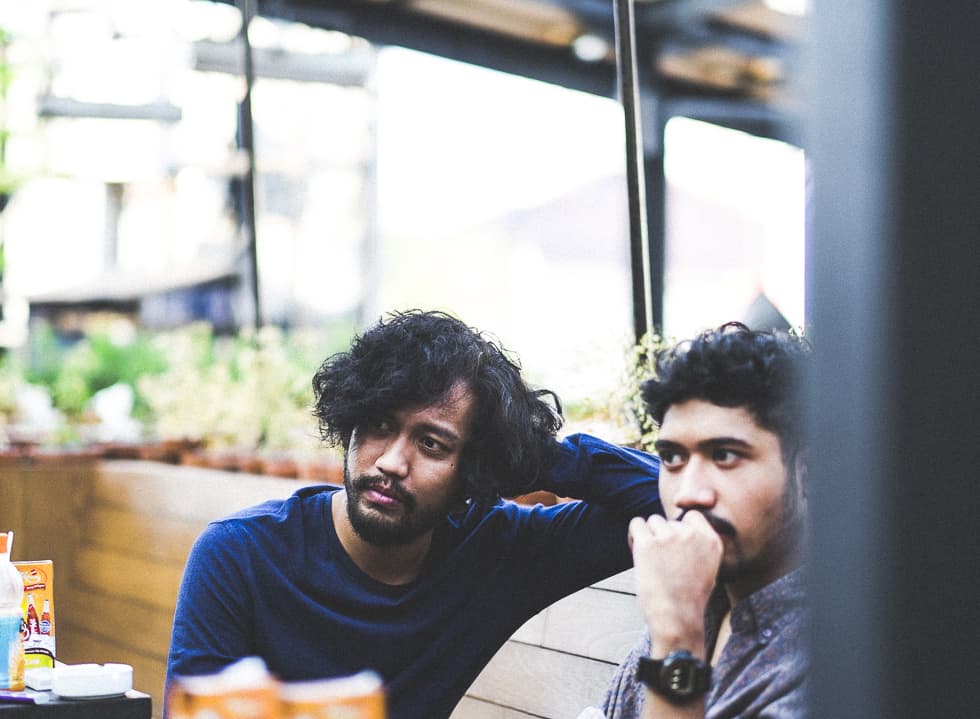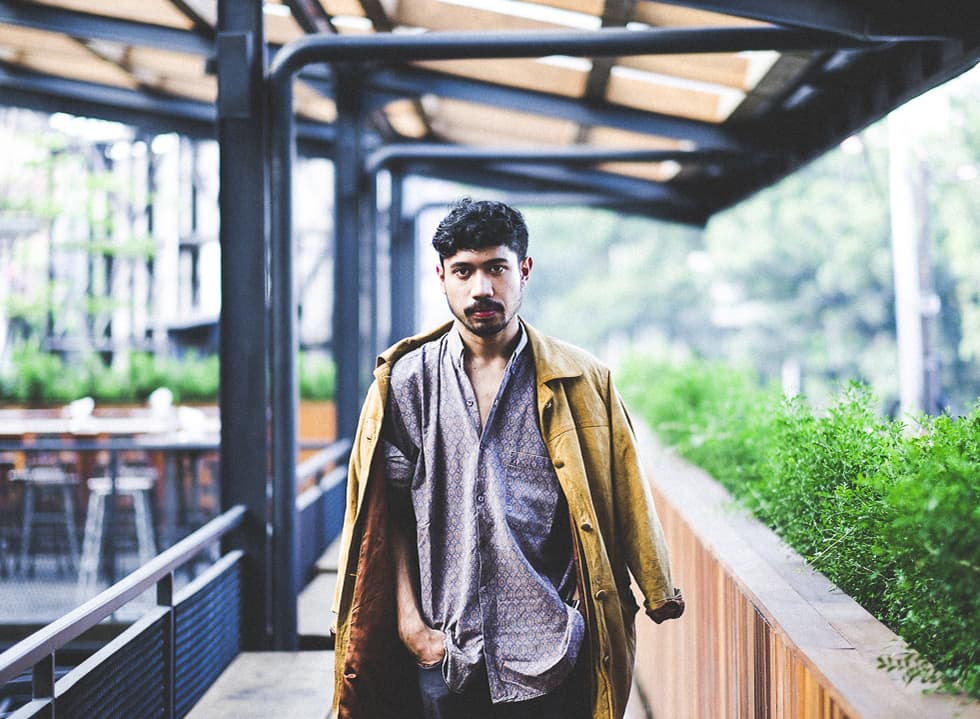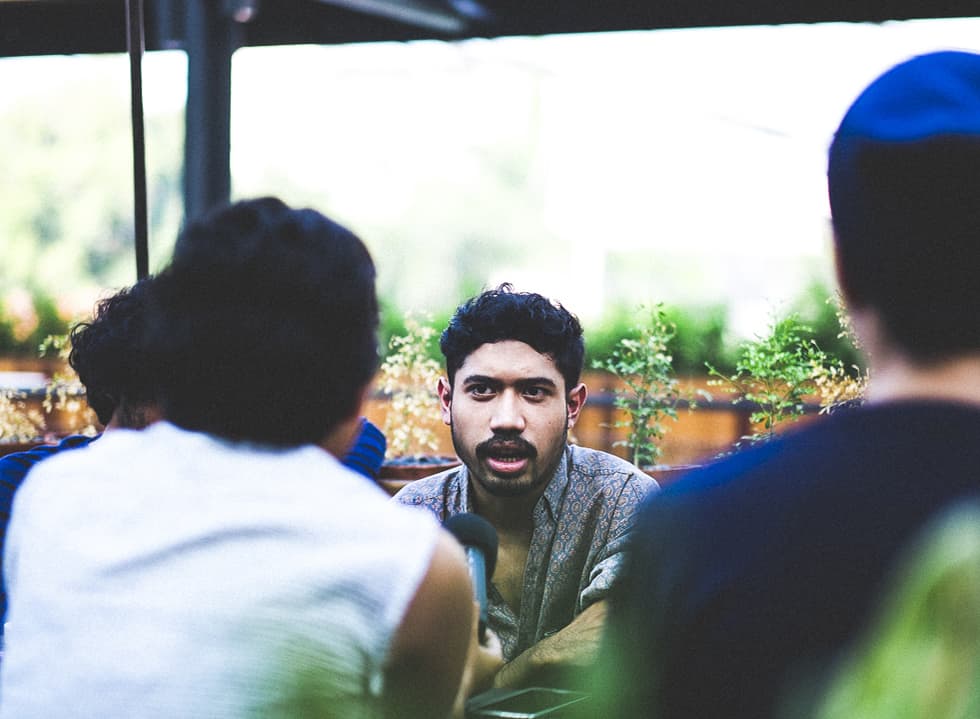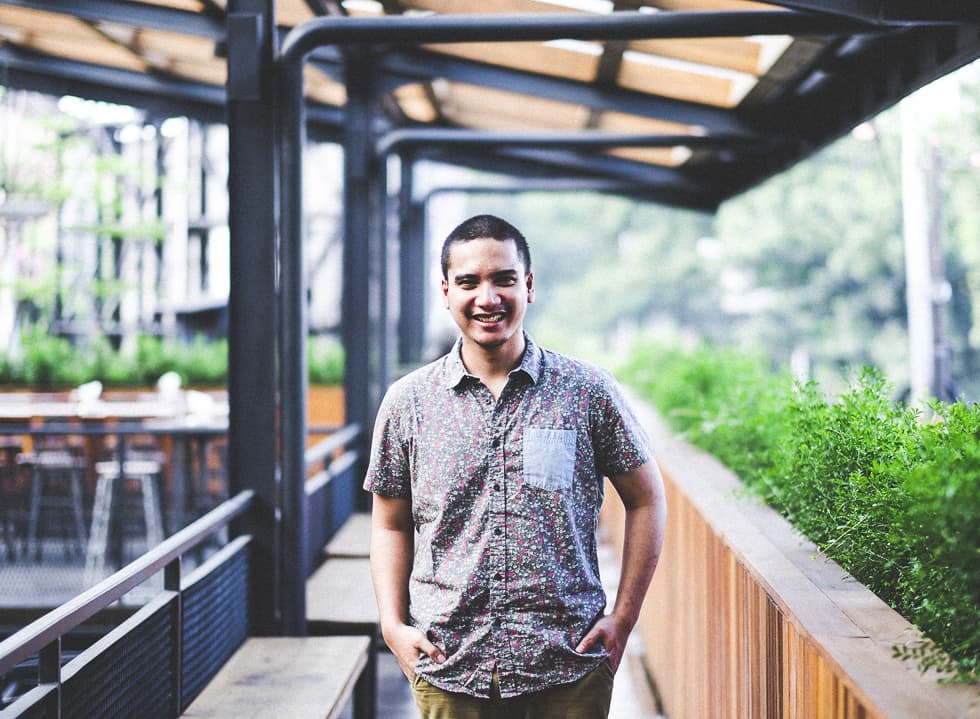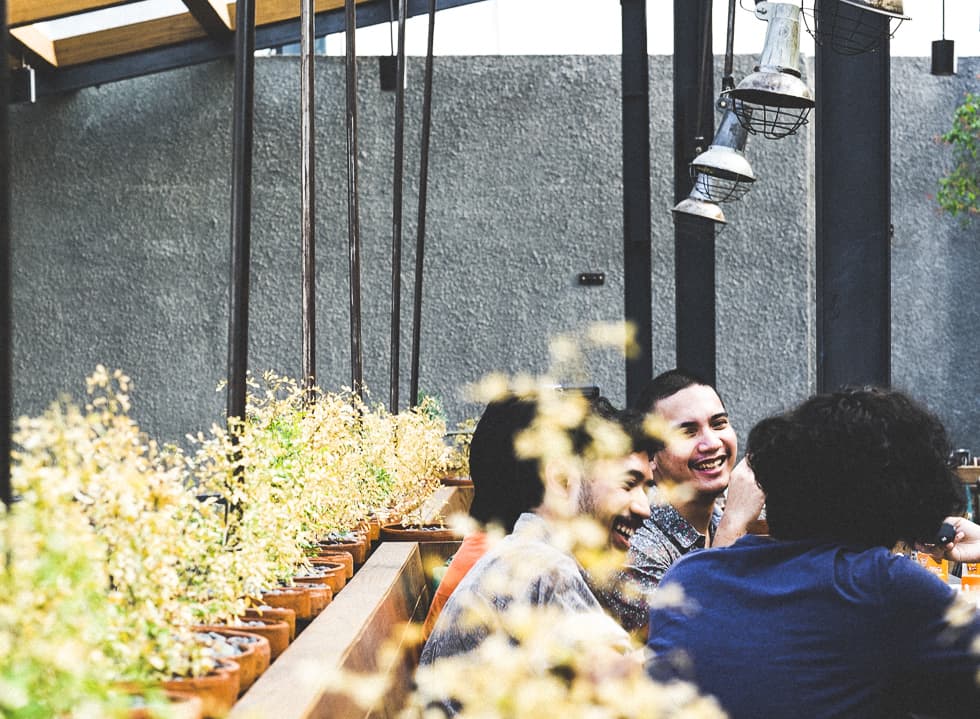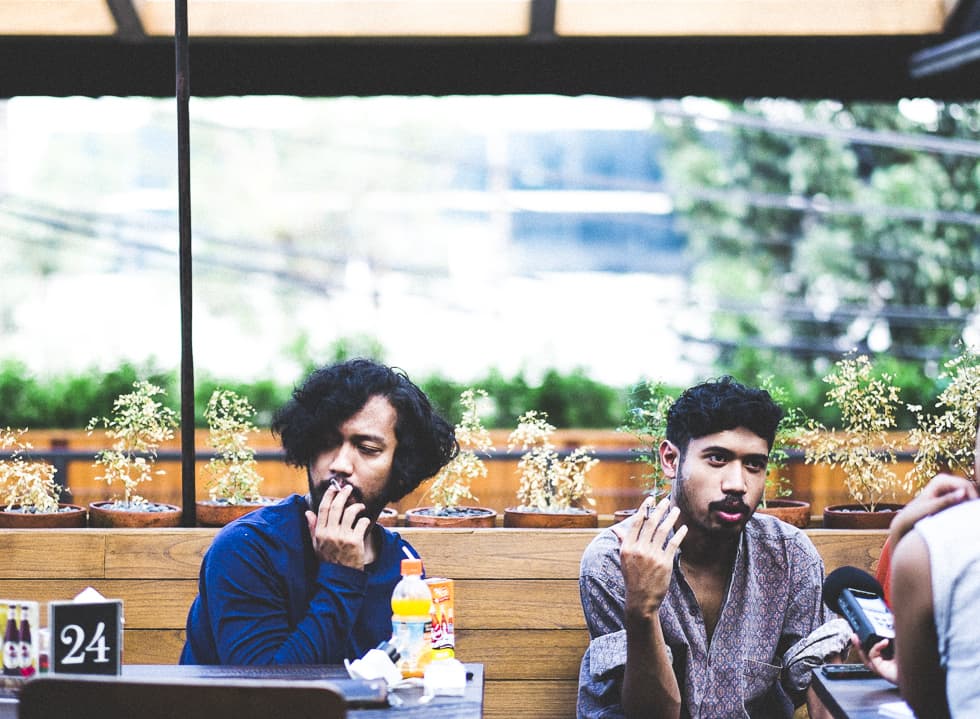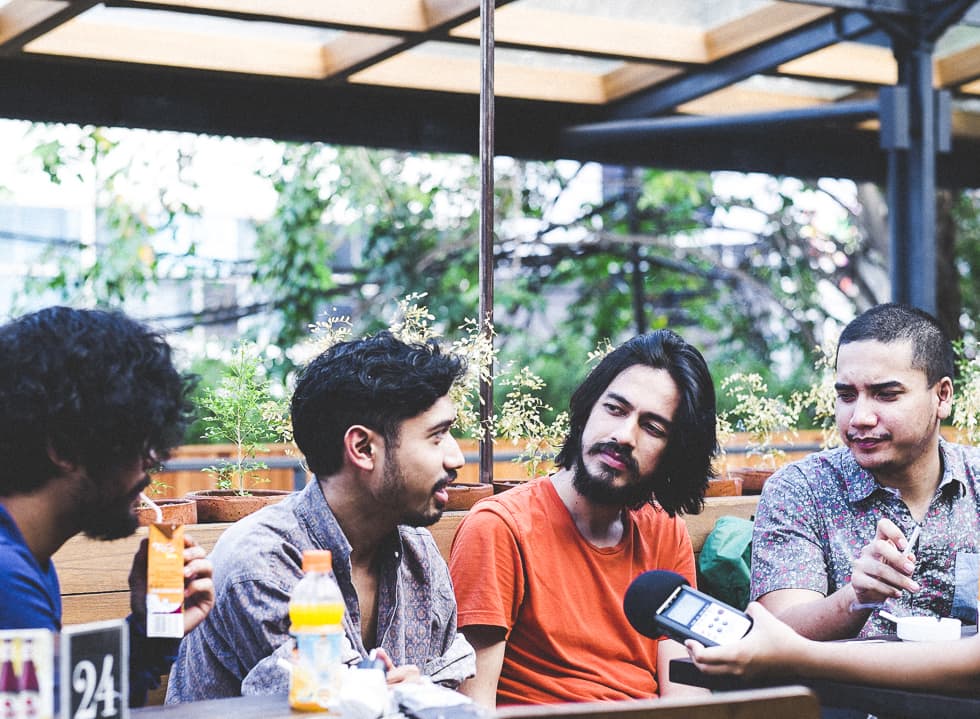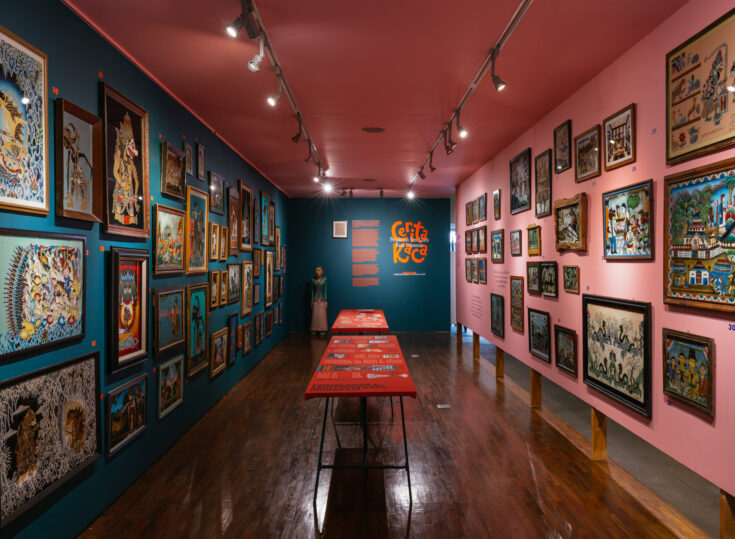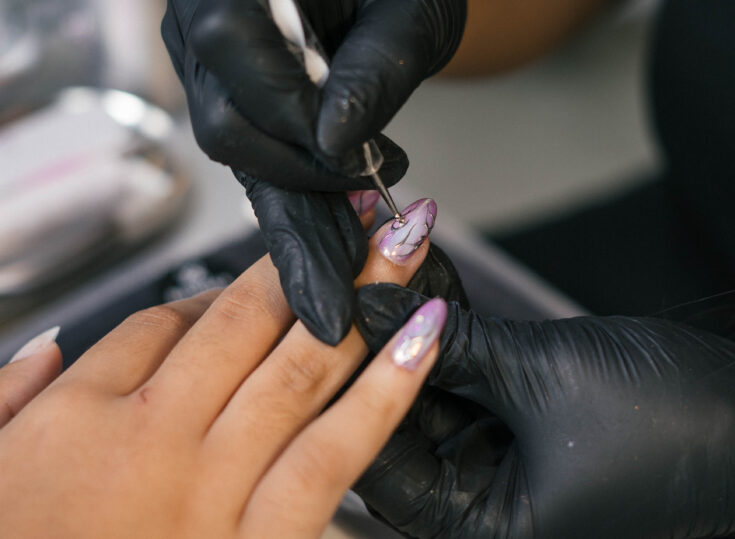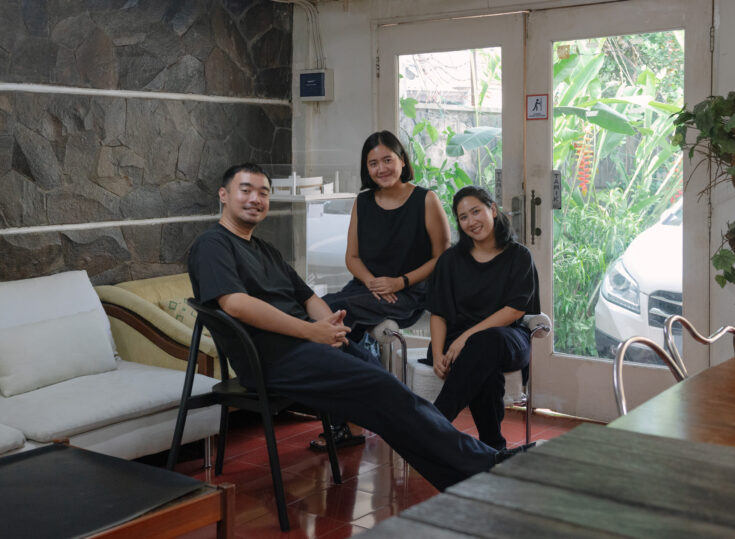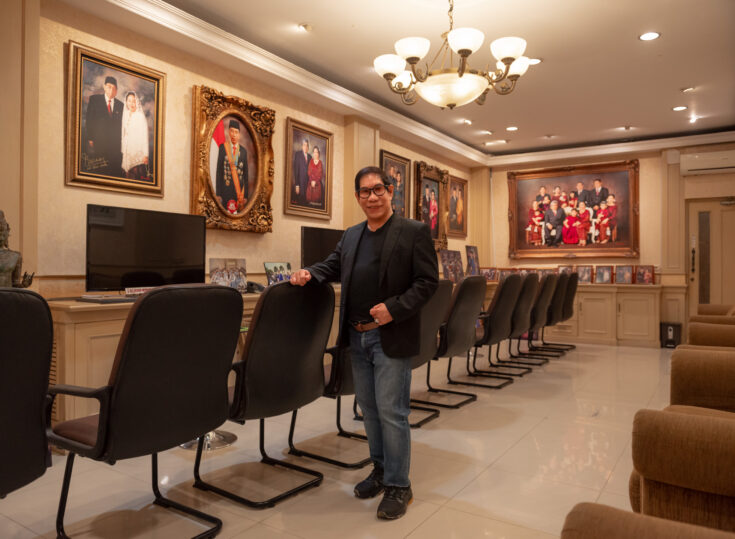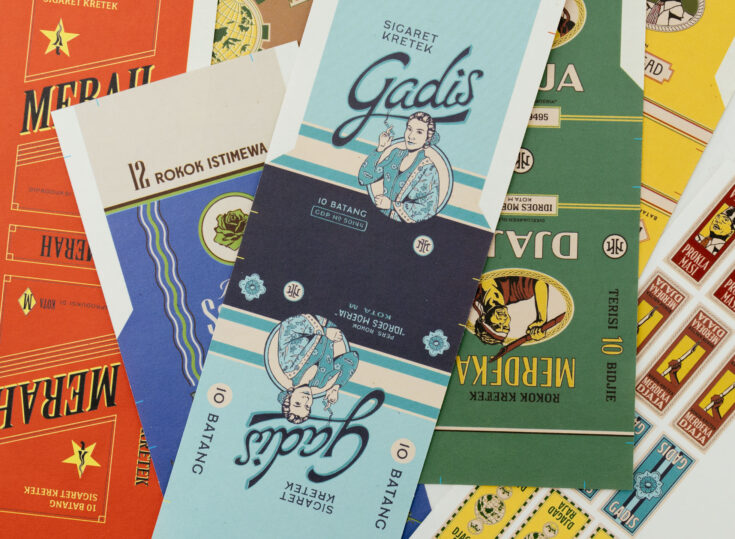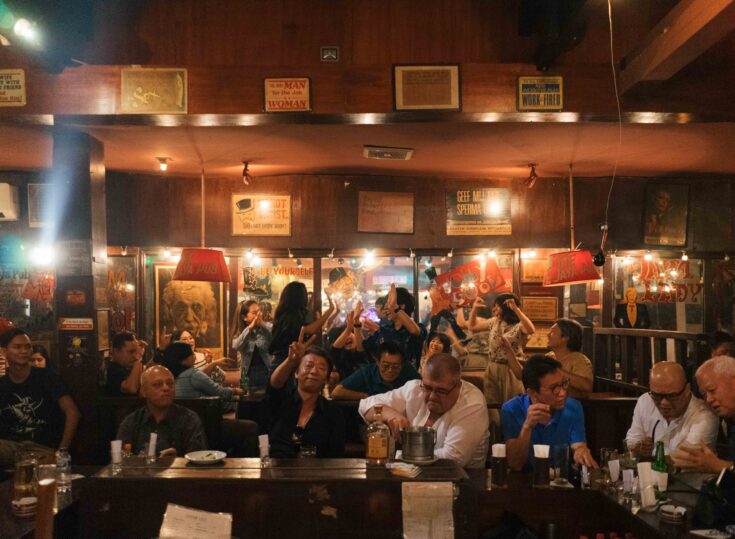It’s only a matter of time until Neonomora and Elephant Kind completely gain ground across Indonesia. After winning several awards (Best Indonesian Album 2013 by Rolling Stone Indonesia and Breakthrough Artist of The Year 2014 by NET.TV for Neonomora, Favourite Newcomer 2014 by Indonesia Cutting Edge Music Award for Elephant Kind) and onstage performances both local and overseas, both Neonomora and Elephant Kind have been particularly recognised for contributing outlandish elements to the local music scene.
With G’day Mate getting closer in our calendar (exactly a week away from today), these promising bands are getting hopeful – and perhaps, a bit apprehensive – to share the same stage with Australian indie rock band The Jungle Giants.
Manual talked to Ratih Suryahutamy of Neonomora on her music and memorable experience during her years in Down Under. Meanwhile, Bam Mastro, Dewa Pratama, Bayu Adisapoetra, and John Patton of Elephant Kind told us why elephant becomes their totem and what to expect from their performances on G’day Mate.
NEONOMORA
Tell us a little bit about your background.
From the very start, my mum used to taught me music since I was young. But it gravitated more towards Jazz. I used to play Nina Simone, Wu Tang Clan and Bing Crosby in our living room. Then, I was exposed to music that is more than just pop and jazz, like Björk, Arcade Fire and Sigúr Ros, when I was studying overseas in Perth. It was a secluded place but the music community was so diverse. I used to hop from one place to another just to attend small gigs put together by these people in the community.
Vocal wise, as I was taught jazz by my mum, it tends to fall slightly on baritone. So as Neonomora, I tried to incorporate music that I enjoyed into my record but still imbued with a soul jazz attitude. I would say my music is a combination of baroque, folk-rock and electronics.
Why do you choose the name, Neonomora?
I wanted a name that reflects who I really am. I don’t want a name without understanding the meaning behind it. So, I dug into the meaning of my own name, Ratih, and found out that in Sanskrit, it means Moon Goddess. In Egyptian, nomo means moon and ra means sun.
I was born a twin but my other twin didn’t survive. I wanted to combine the sun and the moon, darkness and lightness, black and white. It’s about when life and death intertwined on the same day. The name Neonomora itself is pretty dark but I want people to understand that darkness is not always bleak; it can be full of light too. So the name is a juxtaposition of two personalities.
What are the challenges that you’ve faced in local music industry, especially as a woman?
I settled in Jakarta back in 2012 and what I saw was an industry that needed a huge change. If you look at pop singers, especially the females, they’re always focused for their appearance, which is usually girly and very feminine. There’s not enough representation. That’s the challenge for me here and furthermore, the music that I’m trying to push is pretty niche in Indonesia. But if I don’t start this, who will?
I also want to make a change where, through my music, I’m able to promote talented, creative individuals. For my first EP, I worked with an Illustrator, Katherine Karnadi. At that point of time, she was still unsure about whether to devote herself to illustration fully or to stick to her day job. And now, her work was even used by Reese Witherspoon. And that made me very proud because back to my point, it’s all about collaborating together to propel each other to greater success.
So I always make it a point to highlight the music video director for my songs. I believe the music industry will improve and progress when you appreciate everyone’s involvement in a project such as by giving him or her the credits that they deserve.
You were a victim of bullying when you’re younger. Does this influence your music?
It definitely does. But the lyrics didn’t contain any mockery towards those who bullied me. I wrote this song, Fight, where it’s about a girl fighting injustice. So my songs aren’t just about, ‘I love you, you love me too,’ but the songs are more about changing the mentality of the society and that we need to fight on. The lyrics also contained reflections and experiences that I went through when I grew up in different cities. Like in Beijing, people looked at me, this Southeast Asian girl, whom they considered inferior even though we are of the same race. So they looked down and talked down to me, which is also a part of bully. So back to the question, it does affect my music, like 80 per cent of it.
What would you say to people who are going through bullying?
I would say it’s part of life. Even when you’re in the workforce, there will be some people who’ll look down on you. It’s just a part and parcel of life. But don’t stop fighting for the things you love. Back then, I was bullied because I love to sing and won award because of it. Unfortunately, some of my high school friends weren’t happy about that. But, I fought for it. And now, there are friends who used to bully me back then, came to me asking for a job in Frisson Entertainment (a music management company founded by Ratih and Ryan Novianto, her husband). So life is a beautiful pain and you grow from it.
Why do you name your album Seeds?
This is my first album, so I wanted to show something that speaks of a beginning. This is my seed and I hope that it will grow into something that’s better and better.
How has the reception been?
It’s great! I mean I didn’t expect people to buy my album because I’m actually new in this industry and I’m not part of any famous bands in the past. I started from zero and I didn’t have many friends. The fact that my EP and CD were sold out and to see that everyone is embracing my music made me feel appreciated. So yeah, I’m really happy about it.
Bam, vocalist from Elephant Kind, is your brother. Does music runs in the family?
It does. Not from my father but definitely my mother because she can sing and knows how to play piano. So it is passed down from my mum to me and Bam.
What’s the most memorable part about Perth?
There were so many! People like to say that Perth is a dead hole and everything closed at 5pm straight. But I saw that people are very creative due to that sense of isolation there. Creativity thrives even more over there thanks to the strict regulations. I used to live in big cities like Beijing and also been to big Australian cities like Melbourne and Sydney. So when I got to Perth, I felt surrounded by people whom I’m familiar with. Guys there will just say hi to you even when you’re a stranger.
So what can we expect from you in G’day Mate?
I love Australian artists like Sia and Angus & Julia Stone. So I’d probably cover one Australian song. But I’m still thinking about what song to cover because they are just so many remarkable Aussie songs to choose from. Maybe I’ll sing Australia’s national anthem! Well, G’day Mate is a gathering of Australian alumni so I expect it’ll be a close gathering, there will be lots of trips down the memory lane!
ELEPHANT KIND
How did you guys get started with Elephant Kind?
Bam: It all started during my college years in Perth. I went to Western Australia Academy of Performing Arts in which I studied Music Technology, including Performing Arts and Production. On my last year, I had to produce a band for my thesis. Unfortunately, I didn’t find anything that interests me. So I decided to create a project of my own, Elephant Kind. But then, I had to leave Australia because of visa problems. Sadly, I had to leave my band there though it was working very well. And when here, Dewa, Choki (John’s nickname), and Bayu, have already joined in with my sister’s, Neonomora, band. I told them that I need a band player, and I just stole these guys from the band.
Bayu: We still play for Neonomora, though. Funny thing is, before he (Bam) asked us to create a band, I was about to ask him the same question. Bam told me he needed a drummer, so I offered myself. At that moment, I thought this band is going to be that one place where we can put together our music and play them to our heart’s content.
You knew one another way before Elephant Kind then?
Dewa: Yes, we first met Bayu on one particular day when Neonomora performed on stage. We’ve been with Neonomora ever since she first started in the music business.
Of all animals, why did you choose ‘Elephant’? And why did you name it Elephant Kind?
Bam: I happened to see this tweet that said, “Elephant can die from a broken heart,” which is like an equivalence to a human being. So it’s more on the notion that elephants are strong on the outside, but soft on the inside. Well, we mainly would like to speak on behalf of the people who are like elephants; those who are caught in a state of confusion and succumb to heartbreaks brought by a broken relationship, things at work, and everything in their lives. We’re sending out the message through our music for people to be confident, and how it’s okay to be a snob in your own way kind of thing – but not so much on the snob. That it’s okay to be yourself and just try to give less thought about what people say. We would like to speak on behalf of the elephant kind of people.
Do you consider yourselves as these elephant kind of people?
Bam: As a whole, yes we do. But each of us is individually different.
Bayu: As we go along, we find out that apparently the four us are quite sensitive.
What influence your music?
Bam: Just life in general. Everything we see, hear, and experience throughout our lives. We just come up with whatever that comes out of our head.
Dewa: We sometimes sing random melodies in our car during traffic, and often we found the melody was quite catchy. Then we record it in our phone and we’ll compose it in our studio. So the process often starts from our mumbles.
Bayu: We’ve never recommended a song to one another, because we don’t want our music to be affected by the songs we hear.
John: That’s why our music contains every influence from every each of our personalities. When you hear our music, there’d be contrasting melodies in some parts. That’s because we just pour in anything we like. Sometimes when one of us talk with a funny tone, Bam and I found it catchy, then we’re gonna put it into our song.
Bayu: And what unites those difference is Bam’s vocal.
You just released an EP titled Scenarios: A Short Film by Elephant Kind, and we learned that the story revolves around the sad tragedy of this guy called Julian Day who commits suicide. What inspired Elephant Kind to release a first album that focuses on the act of suicide?
Bam: Scenarios is sort of like a bedtime story our parents read to us, it has a storyline. At one point, I was a bit curious about the act of suicide. I was intrigued up to the point I did a research on it – keep in mind that I’m not suicidal, guys! I did a research on suicide notes people wrote before they end their lives, and what I found was that the content is basically similar to an autobiography. It’s someone’s rights to do a suicide, but the message we want to deliver is “If you want to kill yourself, think again. Instead, live your life to the fullest, do something else that’s different.” We think it’s a good concept for our first album. This year, we’re planning to release a short film for this EP and a second EP titled Promenades.
Dewa: There’s one point in the story when Julian Day finally committed suicide and died because of a broken heart, his ex-girlfriend came to his place to patch things up. So when you finally decide to end your life, you won’t find out what comes ahead.
Is it tough to be an indie band in Indonesia?
Bam: It’s hard everywhere in the world. Even the commercial bands, I think they’re having tough times as well because everyone’s striving to be number one. I think we just have to fight for it, whatever’s going to happen. But this is the thing we love doing. If people gonna like it, they’re gonna like it. We’re happy doing it, so whatever man.
Bayu: There’s always this misconception where people think indie is a music genre. When people ask us what sort of music we sing, we answer pop.
Bam: But then again, there isn’t left or right wing in music. This is not politics.
How’s the preparation been for G’day Mate?
Bam: We’re going to cover an Australian song from the 80’s; he’s as legendary as Iwan Fals here.
Bayu: We’re also going to perform some of our songs from Scenarios. We’re almost a hundred percent ready for G’day Mate.
So Bam, your sister is going to share the same stage with you. Do you feel pressured? And for you Dewa, John, and Bayu, you also play for Neonomora; do you guys feel pressured as well?
Bam: Not at all. Yes, we’re in the same management. She’s seen us performed, and we even played together a couple of times before. We’re those types of siblings who support one another.
Bayu: We don’t feel pressured at all. Elephant Kind and Neonomora have different approach and characteristics of music. We are more energetic. Neonomora, on the other hand, has always been the centre of attention within her own band. So when the three of us play for her, we kind of draw ourselves back a bit.
A special thanks to Beer Garden Radio Dalam.
*This interview has been edited and condensed.
Neonomora and Elephant Kind will perform for G’day Mate on Wednesday April 22nd at Empirica, Lot 8 Hall A SCBD, Jakarta. For more information on ticketing and prices visit www.prasvana.com.
